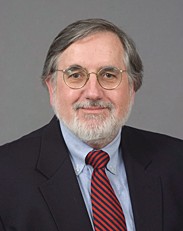Faculty

Christina A. Campbell
Assoc Professor, CECH Criminal Justice
660MC Teachers College
Dr. Christina Alicia Campbell is a tenured Associate Professor in the School of Criminal Justice at the University of Cincinnati. Dr. Campbell earned a B.A. from San Diego State University in 2006 and a M.A. and Ph.D. in Psychology from Michigan State University in 2012. She completed a postdoctoral fellowship in the Department of Psychiatry, Division of Prevention and Community Research at Yale University in 2014. Her passion for research was cultivated as a Ronald E. McNair Scholar and National Institutes of Health, Minority Biomedical Research Support (MBRS) Scholar.
Dr. Campbell's primary research interests include delinquency prevention, risk assessment, juvenile justice, child welfare policy, and reducing racial disparities in the juvenile justice and child welfare systems. Dr. Campbell has over 35 research publications. Her research has been published in various peer-reviewed academic journals, including Criminology Public Policy, Criminal Justice and Behavior, Child and Youth Services Review, Crime and Delinquency, Journal of Traumatic Stress, and Youth Violence and Juvenile Justice.
Dr. Campbell has received funding support for her research from the National Institute on Minority Health and Health Disparities, the National Institute on Drug Abuse, the National Institute of Justice, and the National Science Foundation. Funded by the National Institute of Justice (NIJ), her last grant addressed race and sentencing disparities for youth involved in the juvenile justice system. Dr. Campbell is an NIJ W.E.B. Dubois research fellow and a member of the American Psychological Association, Society for Community Research and Action, American Society of Criminology, and the Racial Democracy, Crime & Justice Network. Dr. Campbell teaches juvenile justice, criminal justice, corrections, and psychology courses.

Francis T. Cullen
Distinguished Research Professor Emeritus , CECH Criminal Justice
660-O Teachers College

John Wooldredge
Professor (F2), CECH Criminal Justice
660NB Teachers College

Joshua C. Cochran
Professor (F2), CECH Criminal Justice
Teachers College


Paula H. Smith
Associate Professor and Associate Director, CECH Criminal Justice
660Q Teachers College

Sarah Manchak
Director of the Center for Criminal Justice Research, CECH Criminal Justice
550 Teachers College
Dr. Manchak teaches at the undergraduate and graduate levels, is the coordinator of undergraduate research in the School of Criminal Justice, runs the faculty-led study abroad program in Scotland, and is the academic advisor for the undergraduate/university chapters of the Ohio Innocence Project the American Correctional Association. She is a certified instructor for Adult Mental Health First Aid and Question-Persuade-Refer (QPR) suicide prevention training.
To learn more, visit Dr. Manchak's website at www.cjimpactresearch.com.